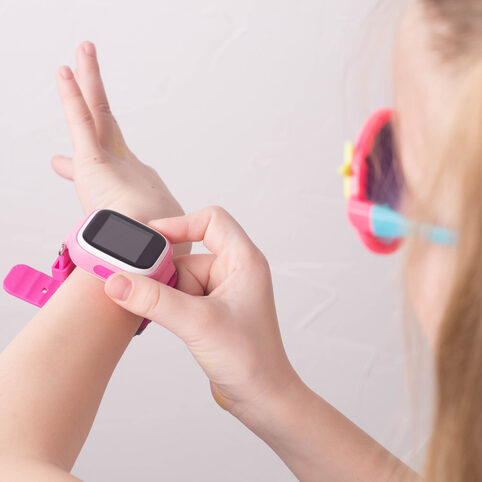Insights < BACK TO ALL INSIGHTS
FTC Focuses on Kids’ Geo-Location Devices in Latest COPPA Warnings
FTC Focuses on Kids’ Geo-Location Devices in Latest COPPA Warnings
By: Ifrah Law
A public service announcement of yesteryear posed the following question to parents: “It’s 8:00. Do you know where your children are?” Today’s technology allows parents to answer that question regardless of the time of day. That technology, however, has recently drawn scrutiny for violating the parental notice and consent provisions of the Federal Trade Commission’s (“FTC’s”) Children’s Online Privacy Protection Rule (“COPPA”). Last week, the FTC sent two warning letters to companies whose products collect children’s geolocation. Reading between the lines of those letters, it is clear much more is at stake than the fate of those two companies. Indeed, the letters evidence that the FTC may be positioning itself to place app stores like Google’s Play Store and Apple’s iTunes within the reach of its COPPA Rule.
By way of background, the COPPA Rule requires companies collecting personal information from children under the age of 13 to post clear privacy policies and, with limited exceptions, to notify parents and get their consent before collecting, using or sharing personal information from a child. The FTC promulgated the rule in 2000, and broadened it in 2013 to bring geolocation data, photographs, and other forms of sensitive personal information within its scope. The COPPA Rule also applies to foreign-based websites and online services that are involved in commerce in the United States. This would include, among others, foreign-based sites or services that are directed to children in the United States, or that knowingly collect personal information from children in the United States.
The first target of the FTC’s letters last week was Gator Group Co. Ltd., a Chinese company that advertises an app and the “Kids GPS” Gator Watch, which it markets to be a “child’s first cellphone.” The app connects to the watch and collects the child’s name. It can also track the child and can enable the user to set an alarm for when the child leaves a geo-fenced “safe zone.” The second targeted company was Tinitell, Inc., a Swedish company that advertises an app and mobile phone “designed for kids, with calling and smart location features.” The app connects to the phone, which is worn like a watch by a child, and can locate the child, call the child, and add contacts, among other features. In both letters, the FTC requested that the target companies take steps to ensure that they do not collect personal information from children other than in accordance with COPPA.
The FTC issued these letters months after activist and consumer groups called for greater privacy regulation of certain technological products like Gator Group’s and Tinitell’s smartwatches. Josh Golin, executive director of the Campaign for a Commercial-Free Childhood, told CBS, “I think we’re used to seeing cheap products for children. If it breaks after six months, that’s one problem. But if we’re talking about a watch that a stranger can easily hack and track where your child’s location is, that’s much more serious.”
Gator Group’s and Tinitell’s apps are not unique. Thousands of popular children’s apps in the Google Play Store could be violating the COPPA Rule, a recent large-scale study reported. “We identified several concerning violations and trends,” wrote the study’s authors, led by researchers at the International Computer Science Institute at the University of California, Berkeley. “Overall, roughly 57% of the 5,855 child-directed apps that we analyzed are potentially violating COPPA.”
Google and Apple currently require apps that they carry in their stores to certify that they have complied with the COPPA Rule, but critics believe that is not enough. “Based on our data, it is not clear that industry self-regulation has resulted in higher privacy standards; some of our data suggest the opposite. Thus, industry self-regulation appears to be ineffective,” the research study’s authors wrote. A reporter with the Washington Post echoed these concerns:
[S]uch a high rate of COPPA violations also reveals a systemic and troubling lack of oversight. While app developers are ultimately liable for such violations, it is clear that app stores like Google Play and Apple’s iTunes Store, as well as agencies like the Federal Trade Commission (which is responsible for enforcing COPPA), need to play a greater role.
The FTC appears to be listening, as it copied Apple iTunes and the Google Play Store on its warning letters to Gator Group and Tinitell. Apple iTunes and Google Play Store make the apps at issue available to consumers in their stores. Further, the FTC reportedly sent copies of these warning letters to Google and Facebook as an “FYI.” For its part, Google issued a response to the study described above:
“We’re taking the researchers’ report very seriously and looking into their findings. Protecting kids and families is a top priority, and our Designed for Families program requires developers to abide by specific requirements above and beyond our standard Google Play policies. If we determine that an app violates our policies, we will take action. We always appreciate the research community’s work to help make the Android ecosystem safer.”
Based on the FTC’s recent actions, Google, Apple, and Facebook will likely have to be more proactive in the future to ensure that products they agree sell and/or advertise are COPPA Rule-compliant. If they do not, the FTC may be forced to intervene by imposing specific mandates upon the platforms and/or taking enforcement actions under existing laws and regulations.





